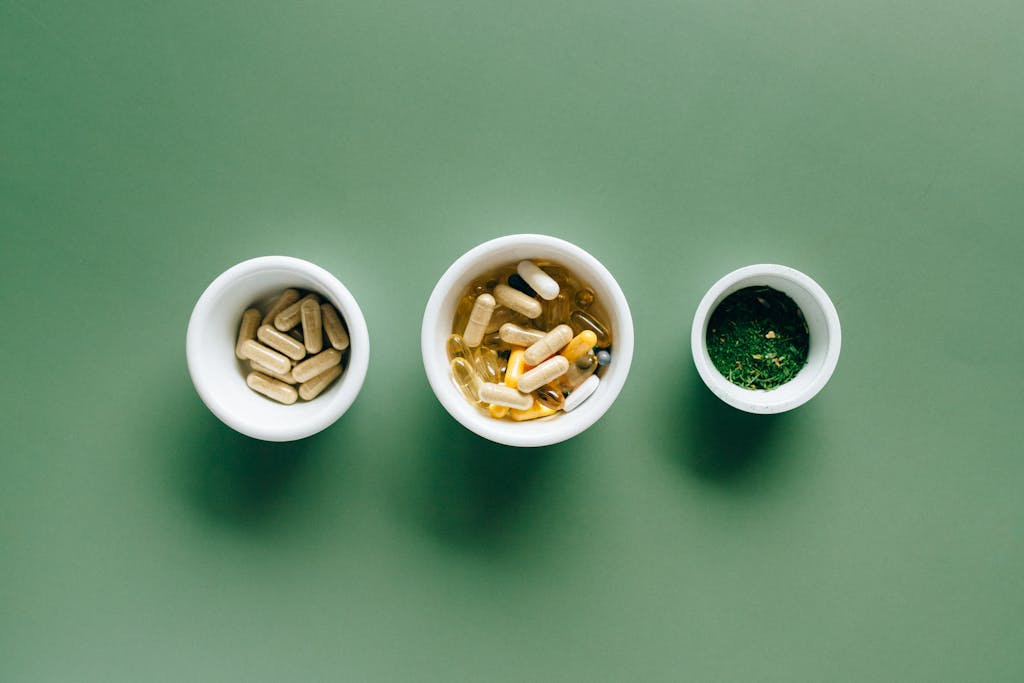10 Healthy Eating for Depression

Overview
- Depression is a prevalent mental illness.
- An estimated 5% of adults worldwide are depressed.
- Depression affects more women than males.
- Suicide can result from depression.
- Depression, whether mild, moderate, or severe, can be effectively treated.
However, there is no single diet that has been scientifically confirmed to lessen depression. Although it is the case that a particular diet might not directly relieve your symptoms or give an immediate mood improvement, a dietary intake high in nutrients can supplement your treatment plan.
Discover the importance of Healthy Eating for Depression. Find out more at Health Wisdom Time.
Depression is the primary source of global disability affecting over 300 million people each year. While the management of depression is multifaceted, there are some natural steps you can take to improve your mood, also by altering your diet to fit the needs of patients with depression.
Your food and your energy levels depend on each other. You should opt for highly available items and fruits/vegetables that are potentially in your kitchen.
Nutrition & Mental Health
Studies prove that getting those foods that fill you up and help keep our body strong, in addition to them being eaten mindfully and intuitively, can be a positive way of thinking and being physically healthy.1 Many find the healing power of a healthy diet most effective when they are having therapy as well as taking medications. “Malnutrition might be a risk factor in the emergence of not only the physical conditions but also mental disorders in people and attention to dietary problems could lead to reduction in the occurrence of those.”
Essential Nutrients
Similar to other organs, your brain also gets affected by what you consume. It needs several vitamins, minerals, and nutrients to survive. If you withhold these fundamental components, your brain’s performance is affected and mental health issues are more likely to occur.
What foods are good for helping depression?
The Right Dietary Choices to Boost Your Mood Often, depression can be controlled through medical intervention and counseling which can help getting rid of depressive symptoms. Moreover, the consumption of selenium-rich and vitamin D-rich foods as well as antioxidants helps in improving wellness.
The link between diet and depression is undeniable. Discover the foods that will not only benefit your physical but also your mental health.
One of the keys to a healthy body is making the right food choices. Eating a diet rich in fruits, vegetables, whole grains, legumes, low-fat dairy foods, and lean meats, poultry, and fish can go a long way toward lowering your risk of physical health problems.
Protein-Rich Foods Boost Alertness

A particular amino acid, tryptophan, contained in turkey, tuna, and chicken etc. are linked to an increased production of serotonin. Attempt to be a protein-based eater as well, mostly during hours when you’re most hungry and in need of energy.
Legumes and peas are rich in protein, while lean meat, low-fat cheese, fish, milk, poultry, soy products, and yogurt contain the most proteins of all.
Can Mediterreanean diet be your source of B vitamins?
A Spanish research shows that in men depression has tended to increase, and it is noted that smoking smokers are the most vulnerable when they have inadequate intake of folate. Regular consumption of food rich in vitamin B12 prevented such an occurrence in men, just as women’s cases but less vitamin B12 did in theirs.
This is not the first research to reveal a connection between these vitamins and the mood got down. Researchers aren’t sure which way the influence goes: however, it is not clear that having low fertility rates cause depression or if depression cause people to eat poorly.
Regardless if you eat meat or vegan food, you can get these Vitamin B from the meals in a Mediterranean diet. The main sources multiplying the level of folate in an individual are legumes, nuts, almost all fruits, and the dark green vegetables. Vitamin B12 is obtained ovarly from eggs, lean beef, poultry and low-fat dairy products.
1. Leafy vegetables

Spinach and depression may seem a strange correlation, however leafy greens that include spinach, lettuce, swiss chard and watercress have many advantages that benefit both physical and mental health.
Leafy greens like folate play a role in both the digestion and cardiovascular health and are good for depression. Most doctors advise to take folic acid during pregnancy which helps to reduce the chances of birth defects. Furthermore, leafy greens keep your body safe from toxins, nurture your gut and help build enzymes.
Also, the Mediterranean diet includes a lot of vegetables such as leafy greens. Research has proven that people who follow this diet live happier and healthier lives. They, in addition, have lower chances of developing depression compared to those who do not follow this diet.
- Making more salads for lunch and dinner
- Blending them into fruit smoothies or other juices
- Baking them into chips, like kale chips
- Using the greens as wraps, like in lettuce wraps for burgers
- Cooking them into soups
Carbohydrates
Carbs have stuck in a bad name, but they are not villains as well. Interestingly, even insufficient intake of carbs may not only have a negative effect on mood but also “induce depression”, states another study. It is due to the fact that carbohydrates constitute the molecular construction materials of the brain serotonin and tryptophan that are the chemical cause of well-being.
Dairy is needed along with healthy Eating for depression

Foods that provide a good amount of protein, including dairy, are likely to benefit the mental health and the performance of the brain. Dairy foods are mostly typically a source of vitamin D and a big chunk of amino acids in their protein. Serotonin is a compound of amino acids that can be accessed via certain boosted moods and help in fighting the effects of depression.
Can Vitamin B12 Help Alleviate Depression?
In the quest for mental well-being, the role of nutrition has become an increasingly fascinating subject. Among the many essential nutrients, Vitamin B12 has garnered attention not just for its physical health benefits but also for its potential impact on mental health, particularly in alleviating depression.
The Link Between Vitamin B12 and Depression
Vitamin B12 is vital for the proper functioning of the nervous system. It participates in the synthesis of neurotransmitters, the chemical messengers that transmit signals between nerve cells. Disruptions in neurotransmitter production, particularly serotonin and dopamine, are often associated with mood disorders such as depression.
Vitamin B-6 (pyridoxine)
Our mood and emotional balance are partially regulated by the amino acid tryptophan, which undergoes conversion into serotonin and subsequently melatonin.
Vitamin B-6 plays a crucial role in this process as it is essential for tryptophan hydroxylase, a key enzyme facilitating this conversion.
Insufficient levels of Vitamin B-6 can contribute to anxiety and depression due to its impact on serotonin levels. The University of Maryland Medical Center suggests supplementing your diet with 25 mg to 50 mg daily for adults experiencing depression or stress, citing a study that observed an association between reduced vitamin B-6 concentrations and increased depressive symptoms
Vitamin D Healthy Eating for Depression
In recent years, vitamin D has garnered significant research attention for its role in mood regulation and its potential to address depression. This vitamin plays a crucial role in controlling the production of three neurotransmitters—serotonin, dopamine, and norepinephrine—that have a profound impact on mood. Surprisingly, vitamin D deficiency is more prevalent than commonly believed; the Centers for Disease Control and Prevention report that nearly 50% of U.S. citizens lack sufficient levels of this vital vitamin. Given its limited natural presence in many foods, obtaining your daily dose may require supplementation or exposure to sunlight. Therefore, consider spending some time outdoors today to ensure you meet your vitamin D needs.
Mental Health can be significantly improved bt using vitamin D
Wrapping Up!
Vitamins and other micronutrients play a vital role in maintaining health and overall well-being. Inadequate intake of these essential elements can lead to illness. In summary, numerous studies indicate that specific vitamins may contribute to improved mental health and aid in preventing conditions such as depression and anxiety. Three particular vitamins have been identified for their potential benefits in addressing these conditions.
Opting for natural supplements emerges as the safest approach to alleviate mental health concerns, surpassing the reliance on medications. These supplements not only provide essential nutrients but also support mood enhancement by enabling the body to produce feel-good chemicals, all without the risk of side effects.
Walnuts A Nutrient-Packed Ally Against Depression
Please note Walnuts have been proven to be a healthy Eating for depression
Including walnuts in your diet isn’t just a tasty choice; it can be a powerful step towards alleviating depression. These versatile nuts, much like the other mood-boosting foods mentioned earlier, boast an impressive array of antioxidant activity. In fact, walnuts stand out from the nut crowd by exhibiting the highest antioxidant activity.
The secret behind walnuts’ antioxidant prowess lies in a potent combination of polyphenols, melatonin, and vitamin E. These compounds work synergistically, offering not only a delightful crunch but also a significant boost to your body’s defense against oxidative stress.
But the benefits don’t stop there. Walnuts are a standout source of omega-3 fatty acids, surpassing their nut counterparts. Omega-3s are renowned for their positive impact on brain health, with potential benefits for mood regulation and cognitive function.
Beyond the brain, walnuts contribute to reducing inflammation, a key player in stress and depression. By mitigating inflammation, walnuts provide a natural and holistic approach to mental well-being. This anti-inflammatory effect can contribute to a more balanced mood and increased resilience against the challenges of daily life.
Additionally, the positive influence of walnuts extends to gut health. A healthy gut is increasingly recognized as a cornerstone of overall well-being, with links to mental health. Walnuts promote a flourishing gut environment, potentially enhancing the connection between your gut and brain—a vital factor in mood regulation.
And let’s not forget about physical vitality. The nutrients in walnuts contribute not only to mental well-being but also to a general boost in physical energy. By incorporating walnuts into your diet, you’re not just supporting your mind; you’re fueling your body for an active and vibrant life.
Lastly, for those concerned with male fertility and sperm health, walnuts have shown promising associations. Including these nuts in your diet may contribute positively to male reproductive health, adding another dimension to the myriad benefits of walnuts.
In conclusion, the holistic advantages of walnuts make them a compelling addition to your diet, especially if you’re seeking natural ways to combat depression. So, why not snack your way to a brighter mood with this nutritional powerhouse? Your taste buds, brain, and overall well-being will
How to Improve Mental Health (tips)
We have tips to help you
- Try to relax and reduce stress.
- Find ways to learn and be creative.
- Spend time in nature.
- Connect with others.
- Look after your physical health.
- Try to improve your sleep.
Ancient Grains
While “ancient grains” has become a popular term in health discussions, it lacks an official definition. The Oldways Whole Grains Council provides a loose definition, considering ancient grains as those that have remained relatively unchanged for several centuries, in contrast to modern wheat and other frequently bred grains. Ancient grains encompass wholesome options such as spelt, barley, quinoa, and buckwheat.
These foods may contribute to mental health due to their complex carbohydrates and low glycemic index, supporting stable blood sugar levels, as highlighted by Serani.
A comprehensive study involving nearly 80,000 post-menopausal women indicated a potential connection between diets rich in high-glycemic foods (known for causing rapid blood sugar spikes, such as added sugars) and an elevated risk of depression. In a smaller-scale study, participants consuming high-glycemic diets were more prone to developing depressive moods over time compared to those following low-glycemic diets. However, a meta-analysis revealed that increasing the intake of complex carbs, as found in ancient grains, might help alleviate the severity of depressive symptoms.
Diet and Depression
A correlation does seem to exist between diet and depression. Consuming the suggested foods mentioned earlier can contribute to enhancing both physical and emotional well-being. Here are some supplementary dietary approaches that may aid in managing depression.
Mediterranean Diet
The association between adopting a Mediterranean diet and depression is intriguing, given that individuals adhering to this dietary pattern often exhibit reduced depression levels. The Mediterranean diet is primarily characterized by
- Plant-based foods (vegetables, fruits, whole grains, nuts)
- Healthy fats (olive oil, avocado)
- Herbs and spices
- Limited red meat
- Fish and poultry




